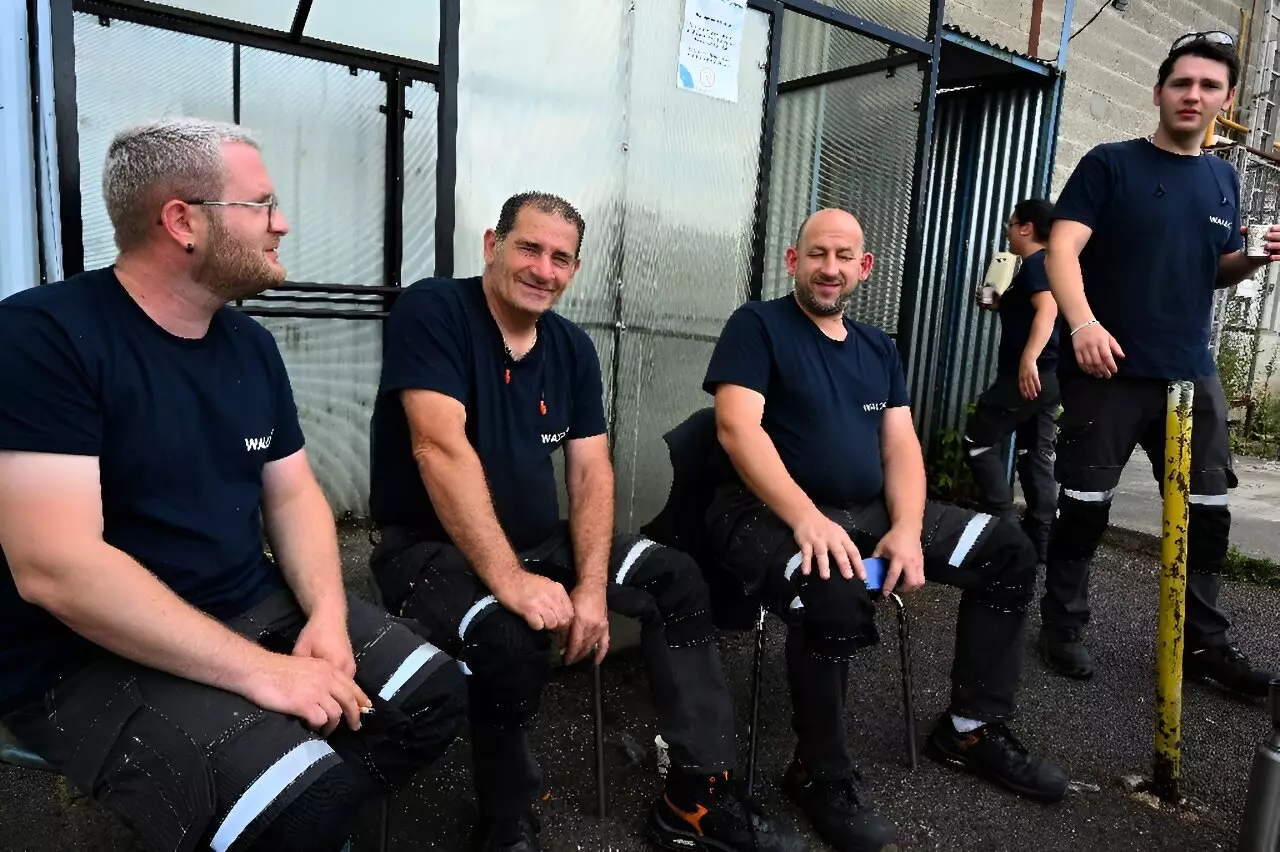As France sets a deadline in 2035 to eliminate new combustion engine cars, the workers in the auto industry are feeling anxious about the future of their jobs. While there is some optimism in regions like the north of France, where a “Battery Valley” is emerging, employees at parts suppliers in other areas are less hopeful. The transition to electric vehicles presents a challenge for the industry employing 200,000 people in France, pushing them towards a necessary transformation.
Workers at companies like Walor in Vouziers express concerns about the lack of investments in transitioning to electric vehicles. The sale of new cars with petrol and diesel engines allowed for only the next decade in Europe means a significant shift for the industry. Suppliers producing parts like transmission differential housings and engine manifolds are likely to face major changes, leading to uncertainty about the future of their jobs. The reluctance of some companies to adapt to the changing market trends puts pressure on employees who fear the possibility of layoffs and plant closures.
Optimism in the North of France
In contrast to the challenges faced by some auto parts suppliers, the north of France is seeing the development of battery “gigafactories” such as the Automotive Cells Company (ACC) in Douvrin. This joint venture involving automakers Stellantis and Mercedes, as well as TotalEnergies, is creating opportunities for job growth in the region. With the construction of a battery plant on the site of an existing factory, ACC aims to retrain employees and adapt to the growing demand for electric vehicles. The establishment of battery training centers and the creation of new jobs indicate a more positive outlook for the auto industry in certain regions of France.
Despite the potential for job creation in the gigafactories, there are concerns about the overall impact on the auto industry. Studies suggest that the transition to electric vehicles could put thousands of jobs at risk by 2030, particularly in the auto parts sector. Economists like Bernard Jullien predict significant job losses as the industry shifts away from petroleum-fueled engines towards electric ones. The challenge lies in managing the workforce transition and ensuring that workers are not left behind in the process of industry transformation.
Offshoring and Cost-cutting Pressures
The shift towards electric vehicles also raises questions about offshoring and cost-cutting practices within the auto industry. With manufacturers like Stellantis considering production facilities outside of France, there are concerns about job losses and the impact on local communities. The need to reduce production costs and stay competitive in the market could lead to more offshoring of manufacturing processes, affecting employment levels in the French auto industry. Workers and union leaders worry about the potential consequences of these decisions and urge companies to consider the social and economic implications of their actions.
The phasing out of combustion engine cars in France presents both challenges and opportunities for the auto industry. While there is optimism about the growth of battery manufacturing and job creation in certain regions, there are also concerns about job losses and offshoring practices. The industry must navigate these challenges thoughtfully, considering the impact on workers and local communities as they transition towards a more sustainable future for the automotive sector.


Leave a Reply